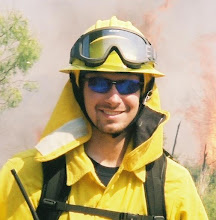"In the hours just before the Tenerife crash, Paul Heck didOver the past six months, my job has flown me to several work locations. They were my first flights in almost ten years. In addition, having just recently graduated with a degree in disaster management, I promptly read the safety manual on the seatback in front of me. In this article, Paul and his wife survived a fatal fire that engulfed his airplane after it was struck on the tarmac by another airplane. Most passengers on his flight had in fact, survived the crash. Most of the fatalities on his flight occurred from the fire that followed. Paul's wife recalled looking over her shoulder as she quickly exited through a hole in the wreckage. She saw her friend, sitting motionless in some sort of trance. That trance cost her friend her life.
something highly unusual. While waiting for takeoff, he studied the 747's safety
diagram."
"As we stood to evacuate, there was a loud thump. In a crowdThe article's author described her experiences at the FAA's Training Academy, after participating in an airplane emergency simulator alongside flight attendants. During times of acute stress and unfamiliar circumstances, the human mind can turn the simplest of motions into complex, confusing tasks ... unless we take the initiative and learn how to survive.
of experienced flight attendants, still someone had hit his or her head on an
overhead bin. In a new situation, with a minor amount of stress, our brains were
performing clumsily."
"If we know that training--or even mental reheaersal--vastlyPolice S.W.A.T. team members will tell you how they "fantasize" about a dozen varieties of situations they encounter. They mentally go through department guidelines, their movements, the conditions they might face, and the possible outcomes. This helps them prepare for any situation and helps ensure that when the moment of truth comes, they won't hesitate or be dumbfounded by an unexpected occurrence. Being a wildland firefighter, I have found myself fantasizing about situations I might come across on the fireline. I take mental note of escape routes and fire shelter deployment zones. I think through every action I must take to properly deploy the shelter and I attempt to fathom the extreme conditions I will face beneath the shelter as a fire passes over me.
improves people's responses to disasters, it is surprising how little of it we
do."
While it's a morbid idea and sometimes leaves you with an uneasy feeling in your stomache, fantasizing about tragedy is an essential tool for increasing your chances of getting out alive.
Fantasize (transitive verb) - to indulge in reverie : create or develop imaginative and often fantastic views or ideas.





1 comment:
My goodness, you're like a superman. Maybe you'll be caught up in an accident while saving somebody and you'll somehow it'll give you superpowers...and you can have a cape...and where the number eight hat...i think you'd be really cool and could pull that off way easy. lol
Post a Comment